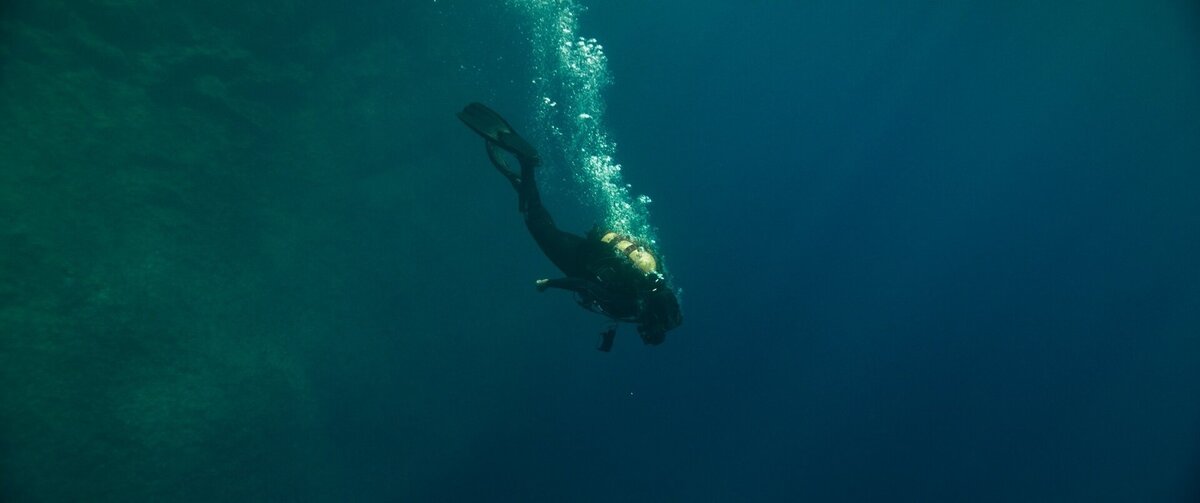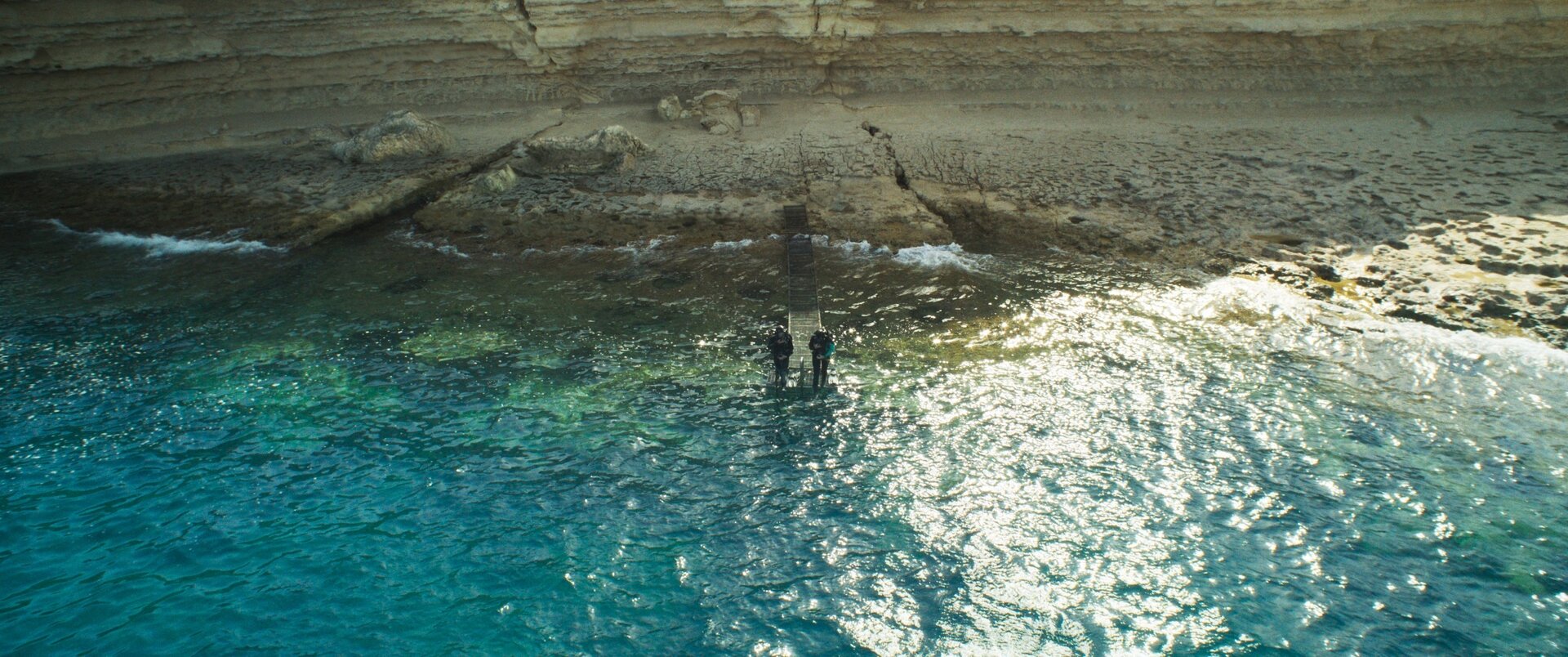«The Dive» - Film Review by Kinoafisha

Truth at the Bottom.
It's difficult to create a deep-sea thriller after movies like the fantastical "The Abyss", the realistic "Sanctum", and even the dramatic "One Breath", where many directors and outstanding actors have already ventured. But maybe it's because "The Dive" is not a Hollywood or American production, but rather what is considered a small European film, that it is both convincing and frightening, dramatic and, dare I say, refreshing. However, not refreshing at all, as every breath of air at depth is worth its weight in gold.
Two contrasting girls (one an obvious lover of life, the other a seasoned skeptic) drive along a fairly deserted road, discussing whether the song "Only You" is good or bad. It's not quite clear who they are to each other, but it is clear that each year around this time they go diving in interesting places. Like many divers, they are intrigued by underwater caves. So a rocky shore with rickety homemade stairs is exactly what they need to begin this fateful descent. The careful preparation of the somber May contrasts with Drew's thirst for adventure, both on land and underwater. The exposition takes 14 minutes for the viewers to explore the underwater world alongside the professional divers, no doubt, in which they will spend the remaining hour and a half. Then, a rockfall occurs on the shore, and prudent May, due to the will of fate and stone (which, essentially, are the same thing), ends up pinned at a depth of 30 meters. Lighthearted Drew must gather her strength and thoughts to save her. The clock is ticking.
"The Dive" is the perfect film to watch in a movie theater.
Director Maximilian Erlenvain doesn't throw dozens of lighting fixtures underwater to make it easier for the audience. He only shows what the divers, with their flashlights and fashionable masks, like Spiderman in the second "Avatar", can potentially see. This film visually immerses you in the planned depths, and in order to feel the pressure of the water's thickness and the preciousness of every bubble of air, even the light from a cellphone screen is unnecessary.

Thank you to the creators, they help the audience understand that all actions are not easy for women. They meticulously discuss the equipment they have and the number of spare cylinders they have left on the shore. And during the dive and the unfolding tragedy, they talk about the depths and the remaining supply of air in their current cylinders. A couple of times, they even compare it to the minutes they have left. So, even if you've never dived, not even in Egyptian resorts, you will be able to connect to the experience, feel the danger, and experience the famous "match effect" from "The Fifth Element." With one significant difference: Bruce Willis could only lose the battle for the planet. But Drew and May could die not only from lack of air but also from nitrogen poisoning or decompression sickness. And overall, the dramatic development of the story is such that it is unclear whether Erlenvain wants to keep both women alive or saying goodbye to one of them is an obligatory, cathartic element of the plot.
Because besides being a thriller about survival and rescue in conditions that are difficult to imagine for 90% of the viewers, "The Dive" is a trap for the psyche and a dive into the depths of the heroines' subconscious, where childhood traumas lie along with fallen stones.
While one searches for hidden physical reserves in herself to resurface multiple times and try to find tools for rescue on land, the other relives a couple of significant episodes from her life, which help the viewers understand her character, her relationship with Drew, and even why the girls chose this passion.

On one hand, it is a logical move. To empathize with both heroines, you need to switch between them equally throughout the film. Flashbacks or attempts to replay the same episode in different ways are the most understandable technique when the heroine is trapped at the bottom of the sea. On the other hand, this is not flashbacks for the sake of flashbacks, but, essentially, the heart of the screenplay. A simple yet convincing metaphor: life needs to trap you so that you finally slow down and... talk to yourself, find substantial reasons to continue living, even smile, and realize that some people genuinely care about you, even if you've long given up on yourself. Initially, the fragmented pastoral memories, gradually invaded by horror, may seem confusing. But Mei's attempts to slow down her breathing to conserve air resemble meditation. And it doesn't come naturally to her at first attempt. And that's why the bright fleeting flashes, which later come together to form a complete picture, look much more believable than thoroughly reliving long episodes from the past.
In simpler terms, "The Dive" looks like a highly realistic movie.

The performances of the main and, in fact, the only actresses in this abyss, Louisa Krause and Sophie Lowe, deserve a separate mention. At first, they appear subtly similar to some other European actresses (for example, they reminded the author of this review of Ludivine Sagnier and Chloe Sevigny), but their individuality and character eventually break through where many would struggle: through their underwater masks, which limit their emotional expression. But they only need their eyes to show excitement, fear, humility, and determination.
"The Dive" doesn't scare with graphic injuries, doesn't promise unexpected monsters, and honestly shoots down all the guns that are hung in the beginning.
This thriller is definitely deserving of the epithet "psychological," and it is with such a mindset - to tickle your nerves with psychoanalysis - that you should go to the cinema.
